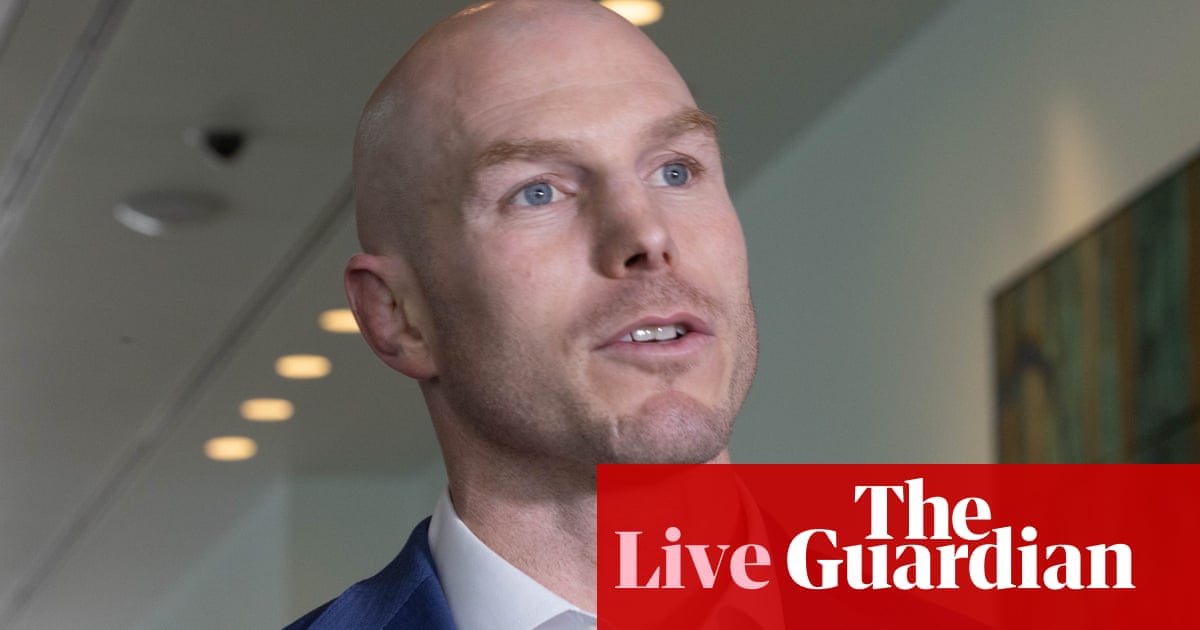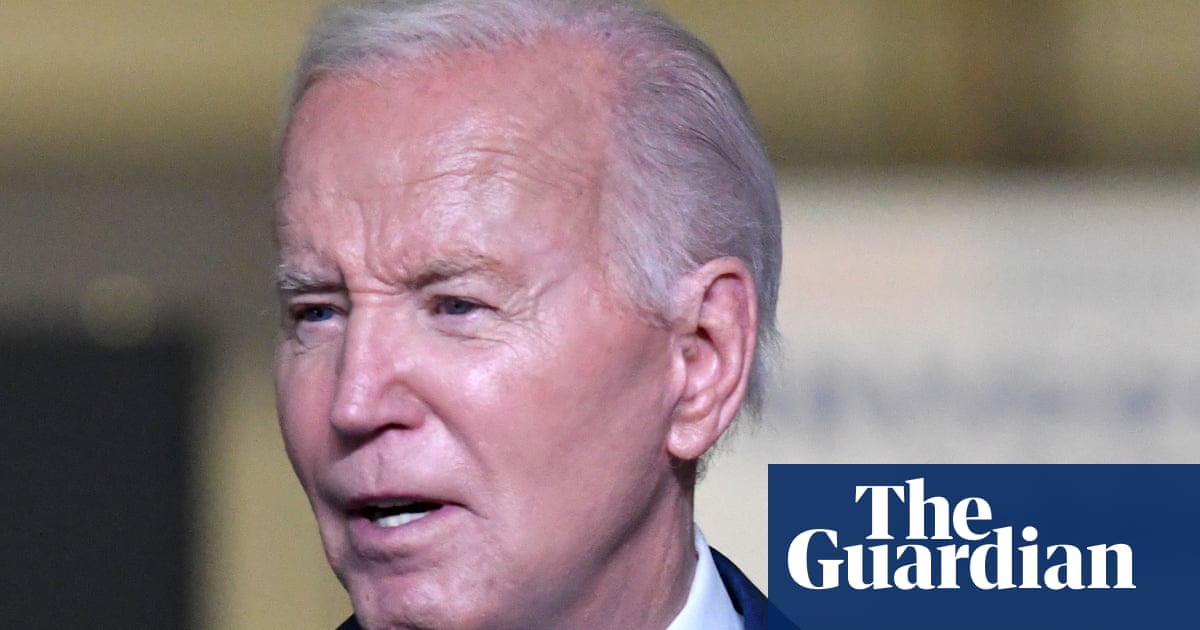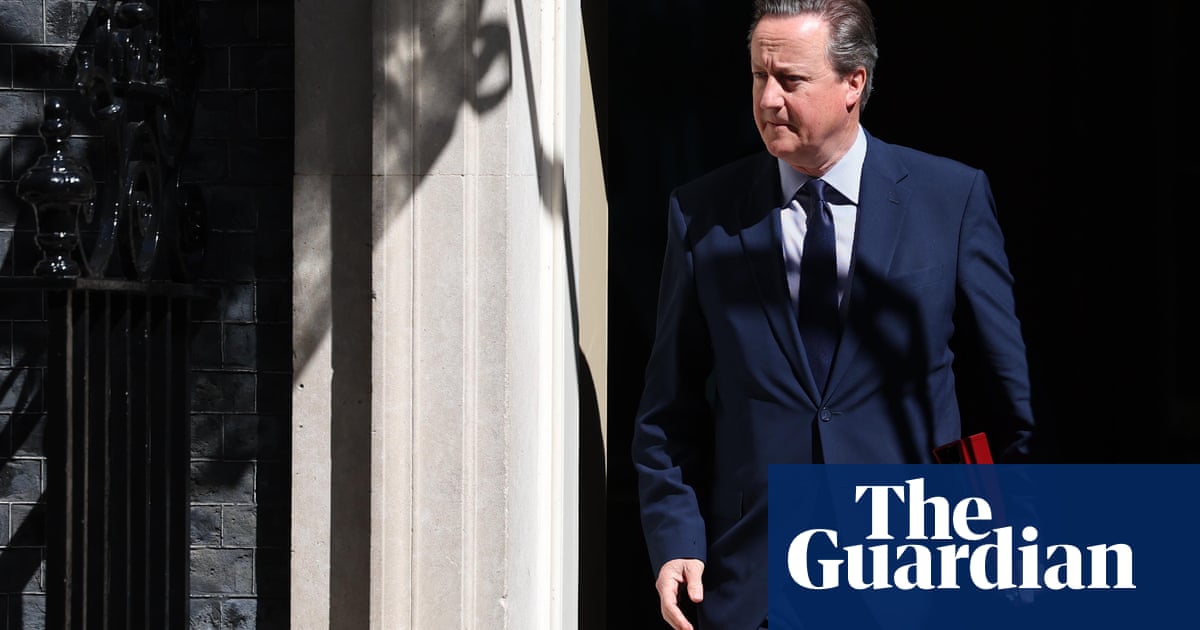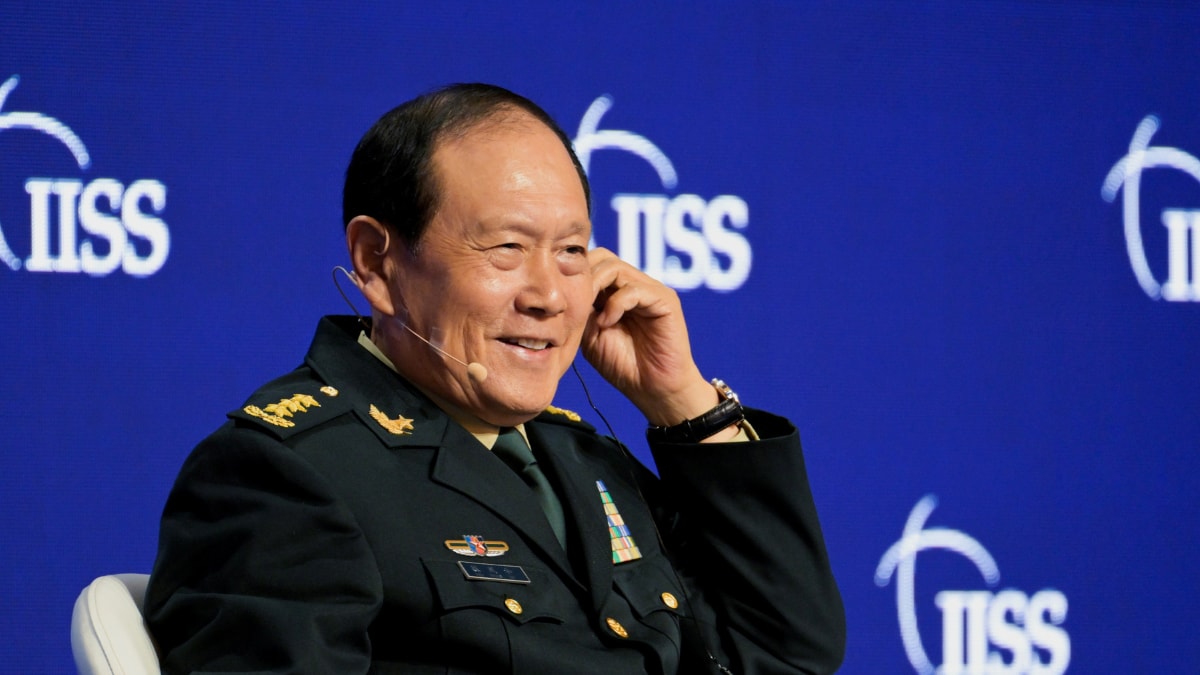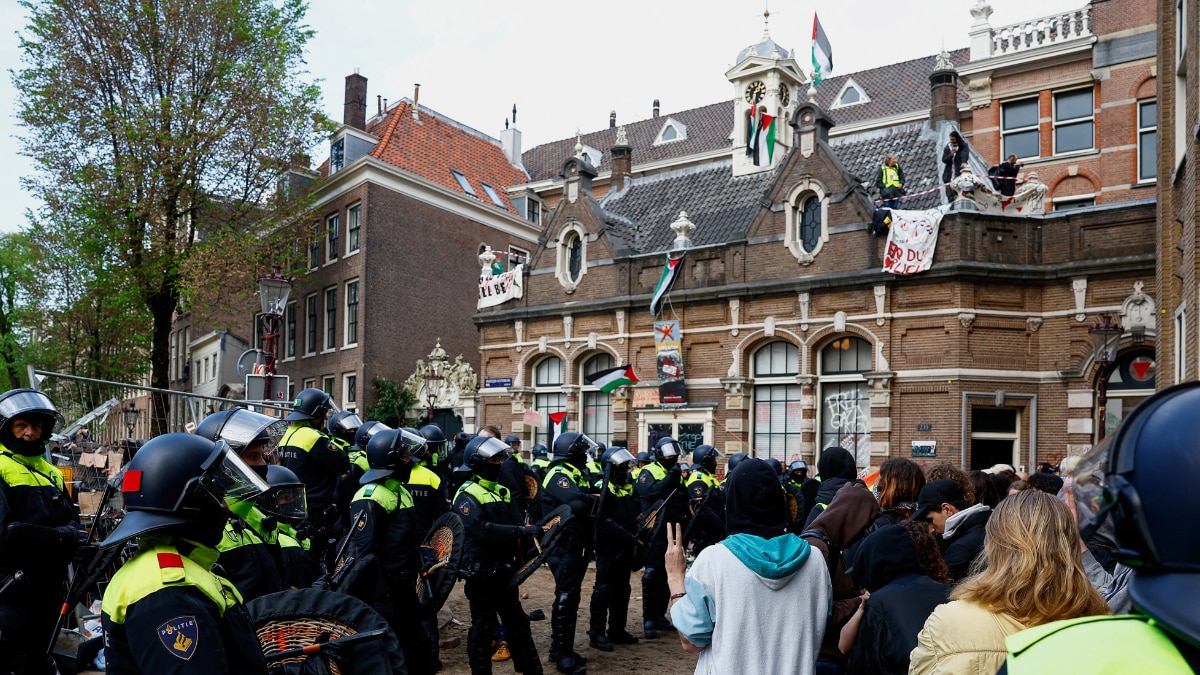Welcome

Martin Farrer
Good morning and welcome to our live news coverage. I’m Martin Farrer and I’ll be bringing you the best of the overnight stories before my colleague Emily Wind takes up the baton.
Voters have backed Anthony Albanese’s Future Made in Australia plan, according to the latest Guardian Essential poll, but are under the misapprehension that renewables are the most expensive form of power, illustrating the difficulty for Labor of selling the energy transition to voters. More coming up from the poll findings on how the prime minister is handling the Israel-Gaza war.
More than 80 years after Australian forces etched their name into military history, Albanese is set to become the first sitting prime minister to walk the Kokoda Track. Albanese will walk the mountainous trail for two days, starting this morning, with the Papua New Guinea prime minister, James Marape, culminating in a dawn service on Anzac Day on Thursday. As well as honouring the sacrifices of troops who fought on Kokoda, the trip will also centre on forging closer ties with PNG at a time when China is looking at expanding its influence in the region. We’ll be following his progress throughout the day.
The war of words between the Australian government and Elon Musk has continued with the tech billionaire using his X social media platform to accuse the prime minister of censorship. The Australian federal court has ordered Elon Musk’s X to hide posts containing videos of a stabbing at a Sydney church last week from users globally, after the eSafety commissioner launched an urgent court case on Monday evening seeking an injunction. It prompted the billionaire to hit back, branding X as the home of “freedom” and Australia as the home of “censorship”.
And as bushfires become more and more frequent in southern Australia, they are burning through previously unburned habitats that some threatened species need to survive, new research suggests. More on that soon.
Key events
PM says Elon Musk an 'arrogant billionaire who thinks he's above the law'
The prime minister Anthony Albanese has called X boss Elon Musk an “arrogant billionaire who thinks he’s above the law”.
Speaking to ABC News Breakfast the PM was asked how far the government would be willing to take Musk on, regarding the takedown of content from last week’s stabbing at a church in Sydney. Albanese said:
We’ll do what’s necessary to take on this arrogant billionaire who thinks he’s above the law, but also above common decency.
What the eSafety Commissioner is doing is doing her job to protect the interests of Australians, and the idea that someone would go to court for the right to put up violent content on a platform shows how out-of-touch Mr Musk is. Social media needs to have social responsibility with it. Mr Musk is not showing any.
In case you missed it late last night, the Australian federal court ordered X to hide posts containing videos of last week’s Wakeley stabbing. You can read the full details below.
Musk also hit back at the eSafety commissioner’s attempts to get him to take the content down overnight, suggesting the government was promoting censorship.
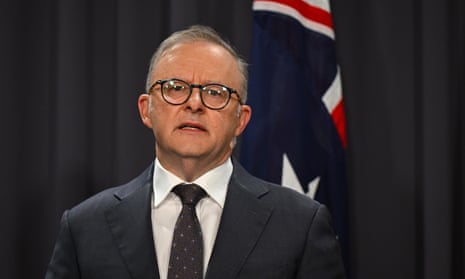

Emily Wind
Thanks to Martin for kicking things off! I’m Emily Wind, and I’ll be with you on the blog today.
See something that needs attention? You can get in touch via X, @emilywindwrites, or send me an email: [email protected].
Let’s get started.
I shouldn't have been sacked, says former home affairs boss Michael Pezzullo

Josh Butler
The former home affairs department secretary Michael Pezzullo believes he shouldn’t have been sacked from his position, despite admitting to wrongdoing after revelations of text messages with a Liberal powerbroker.
Pezzullo admitted to “mistakes” in an interview on ABC’s 7.30 program last night, but believes he didn’t deserve to lose his lucrative job. He was sacked as home affairs boss in November last year, after he was found to have breached the public service code of conduct at least 14 times, including for using his power for personal benefit, following reporting on a series of text messages he had allegedly sent to a Liberal party insider in an attempt to influence political processes.
On 7.30, Pezzullo said he believed another punishment would have been fair, but that the final decision on his position had been decided “fairly”.
I put an alternative view that perhaps an appropriate censure or reprimand would have been relevant or appropriate in the circumstance.
I think a case could be made, in the rough and tumble of places like Canberra, no different from places like Washington or any other political capital, there are networks and people pursuing agendas, whether bureaucratic, policy or resource agendas, and I think that that behaviour can be dealt with in other ways.
What I sought to rebut was that they were of such a grievous kind that they warranted dismissal.

Pezzullo denied he’d sought or gained any personal benefit from his actions. He said it was a mistake to have such conversations, which he described as a “third party back channel”.
The advantage, either in terms of achieving a program outcome or a policy outcome or a particular outcome in terms of resourcing the department.
It was considered, in terms of the finding, that I was using channels outside of the established mechanisms to pursue those ends. I accept that. I made a mistake.
The Australian dream of owning your own home is being “crushed” by rising rents and over-inflated house prices, Anglicare Australia’s rental affordability report says (reports Australian Associated Press).
The report says the national vacancy rate has hit an all-time low of 0.7% while average rents are $200 per week more than pre-Covid-19 pandemic levels.
It said federal subsidies for the private rental market were driving inequity.
“Solutions aimed at propping up private investors, like Commonwealth Rent Assistance and negative gearing, have become the preferred housing policy of governments.”
Anglicare Australia executive director Kasy Chambers said only 289 of the 45,000 homes listed were affordable for a person earning a full-time minimum wage.
“We’ve never seen such bad results for people on the minimum wage, with affordability halving for a single person in the last two years,” she said.
“Even couples with both partners working full-time are locked out of nearly 90% of rentals.”
Of 45,115 rental listings across Australia the snapshot found that:
* 289 were affordable for a person earning a full-time minimum wage
* 89 were affordable for a person on the Age Pension
* 31 were affordable for a person on the Disability Support Pension
* Three were affordable for a person on JobSeeker and all were share houses
* No one on Youth Allowance could afford a rental.

Rafqa Touma
Research is ‘a warning sign for biodiversity conservation worldwide’, bushfires report says
More on that study on the link between bigger and more frequent bushfires and endangered wildlife:
Of almost 2,000 threatened species in Australia “a portion are threatened by fire regimes that have been changing over recent years”, the report found.
“Then a subset of those are threatened species that need habitat that has not been burned for a long time to persist, because that habitat has different types of attributes that these species need,” researcher Dr Billy Geary said, referring to tree hollows, logs on the ground and different food resources.
The western ground parrot from WA is one of the 129 species looked at by the study that require long unburned habitat to reach its highest population numbers, but has instead seen its habitat shrink since 1980. The western ground parrot experienced a decline in unburned vegetation from 68% to 9% – “a really large reduction in the amount of habitat for that species,” Geary said.
The report acknowledges that a pattern of large, high-severity fires is becoming commonplace across the world, triggered by climate change, land-use change and the spread of exotic plants, as well as novel anthropogenic burning and displacement of Indigenous people.
“Our results serve as a warning sign for biodiversity conservation worldwide,” the report said.
Fires in southern Australia getting bigger and more frequent

Rafqa Touma
Fires are getting bigger and more frequent in southern Australia, burning through previously unburned habitats that some threatened species need to survive, new research suggests.
“We are losing habitat that has not been burned for more than 30 years,” Dr Billy Geary, University of Melbourne lecturer in quantitative ecology and biodiversity conservation, said. “This has got important implications for biodiversity.”
Geary was an author on the study published in the Proceedings of the Academy of Sciences, which collates four decades of change in fire frequency and the amount of unburned vegetation across Western Australia, South Australia, Victoria and New South Wales.
Assessing 415 reserves and forests – covering more than 20 million hectares and home to 129 fire-threatened species including frogs, reptiles, birds and mammals – the study found that most conservation reserves and threatened species experienced increases in fire frequency as well as and declines in the amount of unburned vegetation from 1980 to 2021, Geary said.
The mean fraction of vegetation within reserves that did not burn in the 30 years prior dropped from 61% in 1980 to 36% in 2021.
During the same period, the mean fraction of vegetation burned in the five years prior increased from 20% to 35%, and the mean fire frequency in reserves increased by 32%.
The impact is most severe in areas at high elevation with high environmental productivity and strong rainfall decline – “a sobering picture for threatened species in fire-prone landscapes,” the report said.
Welcome

Martin Farrer
Good morning and welcome to our live news coverage. I’m Martin Farrer and I’ll be bringing you the best of the overnight stories before my colleague Emily Wind takes up the baton.
Voters have backed Anthony Albanese’s Future Made in Australia plan, according to the latest Guardian Essential poll, but are under the misapprehension that renewables are the most expensive form of power, illustrating the difficulty for Labor of selling the energy transition to voters. More coming up from the poll findings on how the prime minister is handling the Israel-Gaza war.
More than 80 years after Australian forces etched their name into military history, Albanese is set to become the first sitting prime minister to walk the Kokoda Track. Albanese will walk the mountainous trail for two days, starting this morning, with the Papua New Guinea prime minister, James Marape, culminating in a dawn service on Anzac Day on Thursday. As well as honouring the sacrifices of troops who fought on Kokoda, the trip will also centre on forging closer ties with PNG at a time when China is looking at expanding its influence in the region. We’ll be following his progress throughout the day.
The war of words between the Australian government and Elon Musk has continued with the tech billionaire using his X social media platform to accuse the prime minister of censorship. The Australian federal court has ordered Elon Musk’s X to hide posts containing videos of a stabbing at a Sydney church last week from users globally, after the eSafety commissioner launched an urgent court case on Monday evening seeking an injunction. It prompted the billionaire to hit back, branding X as the home of “freedom” and Australia as the home of “censorship”.
And as bushfires become more and more frequent in southern Australia, they are burning through previously unburned habitats that some threatened species need to survive, new research suggests. More on that soon.

 2 weeks ago
2 weeks ago



